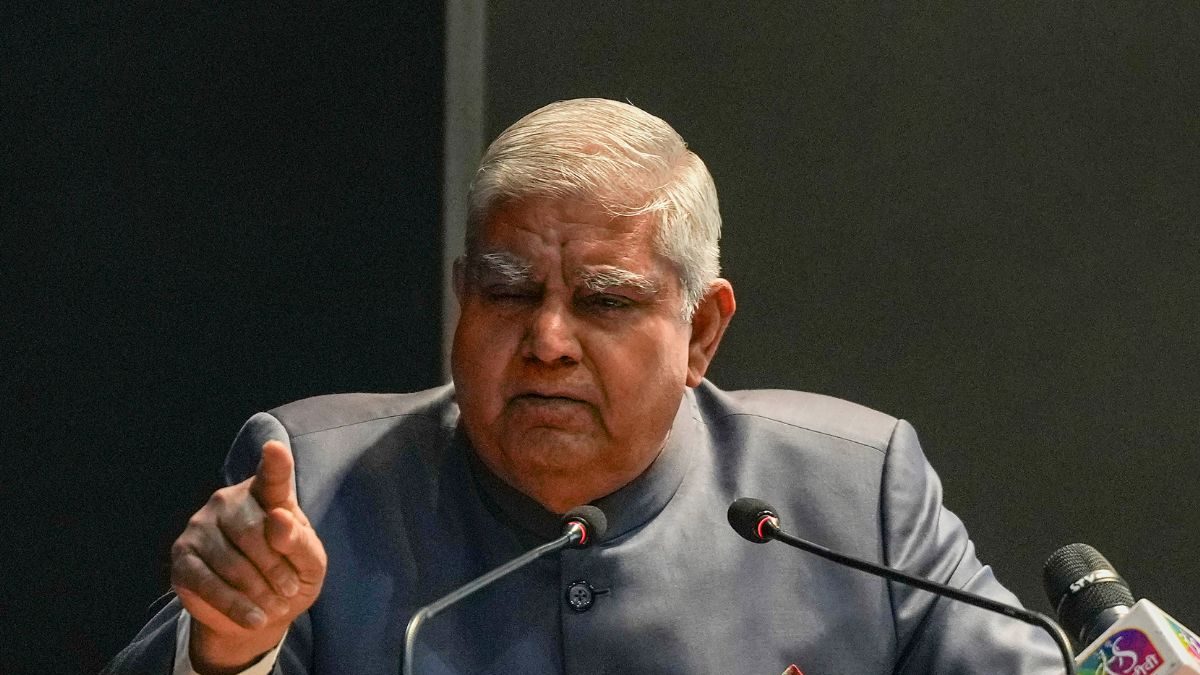Vice President Jagdeep Dhankhar on Friday expressed concerns about attempts to portray India negatively on the global stage. In his speech at the National Human Rights Commission’s foundation day celebration, he cautioned against forces working to tarnish India’s image and highlighted the importance of a strong counter-response to such efforts. Dhankhar emphasized that India, while committed to human rights, resents being lectured or preached to on the matter.
India’s Stand Against External Scrutiny
Dhankhar acknowledged the existence of forces seeking to deliberately misrepresent India’s human rights record, describing their motives as “sinister” and their actions as aiming to “unfairly taint us.” He specifically addressed these forces’ use of international platforms to cast aspersions on India’s commitment to human rights. In response to this, Dhankhar advocated for a robust counter-attack, using the Hindi term “pratighat” to convey the need for a decisive response to neutralize these forces’ negative influence.
The Significance of Counter-attack
Dhankhar emphasized the urgency of this “counter-attack” in the face of deliberate attempts to paint India in a negative light. He criticized the creation of indexes and rankings that aim to portray India negatively on a global scale, claiming these are designed to unjustly diminish the country’s achievements.
Defending India’s Actions and Achievements
Dhankhar specifically criticized the “hunger index,” which ranked India poorly, pointing out that during the COVID-19 pandemic, the Indian government provided free ration to over 80 crore people, regardless of caste or creed. He implied that such rankings do not reflect the realities of India’s efforts to improve the well-being of its citizens.
The Reality of India’s Efforts
Dhankhar’s emphasis on India’s proactive approach during the pandemic and the government’s commitment to supporting the needs of its people highlights the broader point that India is actively working to address challenges and improve the lives of its citizens. He subtly suggests that international rankings are often simplistic and do not fully capture the complexities and nuances of India’s socio-economic reality.
Addressing Past Challenges and Building a Strong Future
In his speech, Dhankhar acknowledged India’s historical challenges, referencing the trauma of Partition, the imposition of Emergency, and the 1984 anti-Sikh riots. He sees these events as sobering reminders of the fragility of liberty, highlighting the importance of vigilant action to prevent similar situations in the future.
The Need for Collective Action
Dhankhar’s acknowledgment of India’s past challenges underlines the importance of collective action to safeguard the country’s democratic values and prevent future abuses. It underscores the need for strong institutions and ongoing vigilance to protect human rights and ensure the well-being of all citizens.
Take Away Points
- Dhankhar’s remarks underscore India’s growing awareness of the influence of global narratives and the need to counter narratives that seek to unjustly portray the country in a negative light.
- His emphasis on the importance of a strong counter-response suggests that India is moving toward a more proactive approach in defending its interests and projecting its positive achievements on the world stage.
- His reference to the country’s past struggles serves as a reminder that the pursuit of a just and equitable society is an ongoing effort, requiring sustained commitment from all sectors of society.









